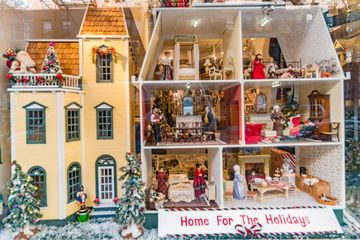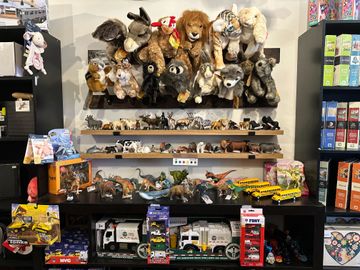Before he discovered the intriguing land of miniatures, Leslie Edelman practiced as an attorney. This all changed when he befriended a couple that owned a doll house business on Lexington Avenue in the 1980s. “The next thing I knew, I was working with them. ” Leslie would go to shows and spend his spare time doing odd jobs in the shop. When the couple was ready to retire, they asked if he wanted to purchase the shop. Enchanted with the idea of opening a niche business, building tiny furniture, and traveling the world collecting doll house pieces, Leslie said yes. Today, he is also the mastermind behind many of Tiny Doll House’s designs. In the mid-1990s, the store moved to East 78th, where it has seen its clientele change over the decades. Initially, the business attracted people from around the globe who had an interest in the hobby. “They would come to us as we were the tourist center of the world. ” There were also local families interested in building their children a doll house, and then it turned to collectors as later generations became immersed in electronics. “Today, we are seeing more and more young people have a renewed interest in miniatures. ”Who would not be fascinated by the rows of tiny watches, tea sets, board games, bottles of wine, minuscule cakes, and musical instruments? Modern leather couches, mini televisions, and beautifully crafted Lilliputian antiques decorate the various houses that also run the gamut. There are stores, workshops, Tudor cottages, and federal mansions. Leslie even sells the mini people who go inside each model, ranging from a small rendering of the Mad Hatter to a woman in an elaborate sari sitting next to a hookah. A standout moment for Leslie and his partner, Tim Porter, was the day “Joan Rivers flung open the door, threw her shoes to one corner and her fur coat to another, and the next thing we knew we were building a house for her. ” She used it as a prop on QVC to promote her charm bracelets. “She sold a hell of a lot of them! ”

